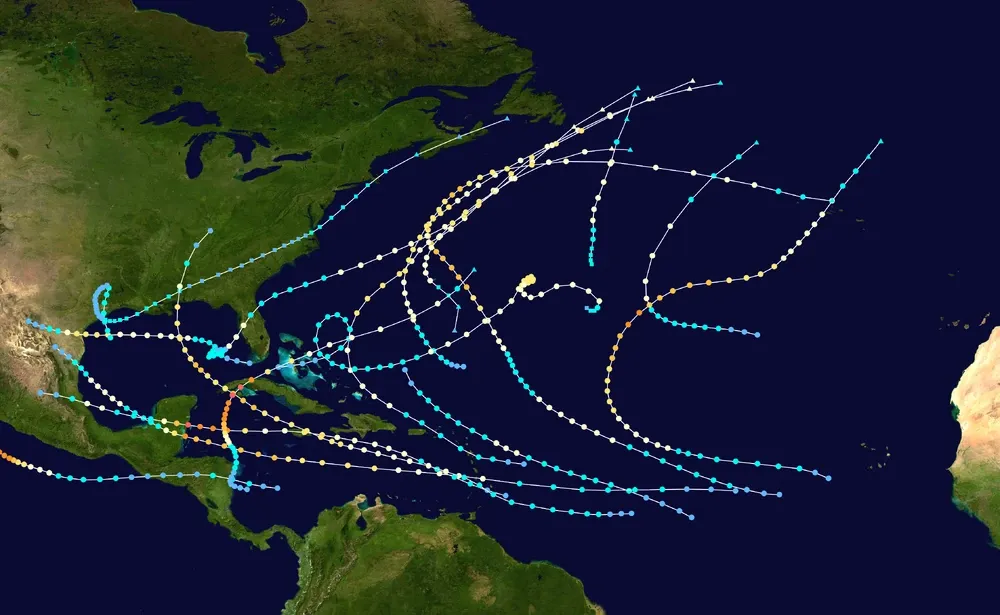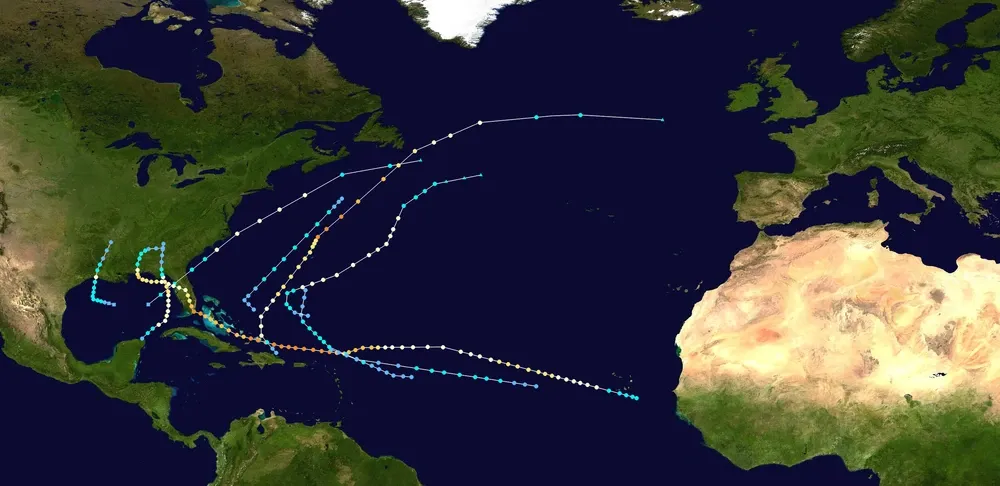So, you might have been thinking I'm going to talk about AppleTV's latest climate dystopian series...but I'm not. Before you cry "click bait," hear me out why extrapolations matter here.
Telling the Future
Humans are drawn to predictions. We are fascinated about telling the future, and have been for hundreds if not thousands of years. Think Nostradamus, fortune tellers, astrologist readings, economic predictions, and everyone's favorite: weather forecasts.
Extrapolation is one of the simplest ways to forecast the weather or climate (beyond basic persistence: "what happened today will happen tomorrow"). Such rudimentary methods might indicate a climate trending warmer and more volatile will continue on that trajectory. It's of course not that simple in reality. The world is chaotic...and so is the weather.
Take Atlantic hurricanes for instance. Extrapolations of the La Nina trend going into Summer 2022 indicated the tropical season should have been much busier than it actually was (Fun Fact: we also have seen a much busier atmospheric river winter season for the West Coast, which is normally indicative of an El Nino year which of course it isn't...yet). Extrapolations and conventional meteorological wisdom didn't help us over the last year. Now that we may be transitioning into an El Nino, we should see fewer Atlantic storms, right?
Actually, yes. At least I think so.
2023 Hurricane Season Prediction
This is the time of year all the hurricane prognosticators like to get out their fancy extrapolation calculations for the upcoming tropical season. AccuWeather released their forecast, Colorado State University will release their's next week, and NOAA's National Hurricane Center will wait until late May with the season running roughly June 1 - November 30. The average Atlantic season has about 14 total storms, 7 hurricanes, and 3 major hurricanes (Cat 3+). In 2022, we had 14, 8, and 2 respectively in the Atlantic. Using analog years of past hurricane seasons looking at extrapolations of ENSO indices, one might see 2001 or 2012 as interesting years to compare (these were actually a little busier than normal).


But this year feels closer to 1982 based on how I saw the energy transfer with atmospheric rivers, so I am going to stay bearish in my slightly more accurate than a groundhog prediction.

I also conferred with Zoltar and he said:
11 total storms
5 hurricanes
2 major hurricanes
It Just Takes One
Remember though. As Hurricane Ian showed us last year...it only takes one. Now is the time for coastal communities to prepare and think about how to ready their homes and their evacuation plans. In the long-term, climate change may bring us fewer total hurricanes in the future, but we are seeing the number of rapidly developing storms increase...at least if we look at the extrapolations.


Member discussion: